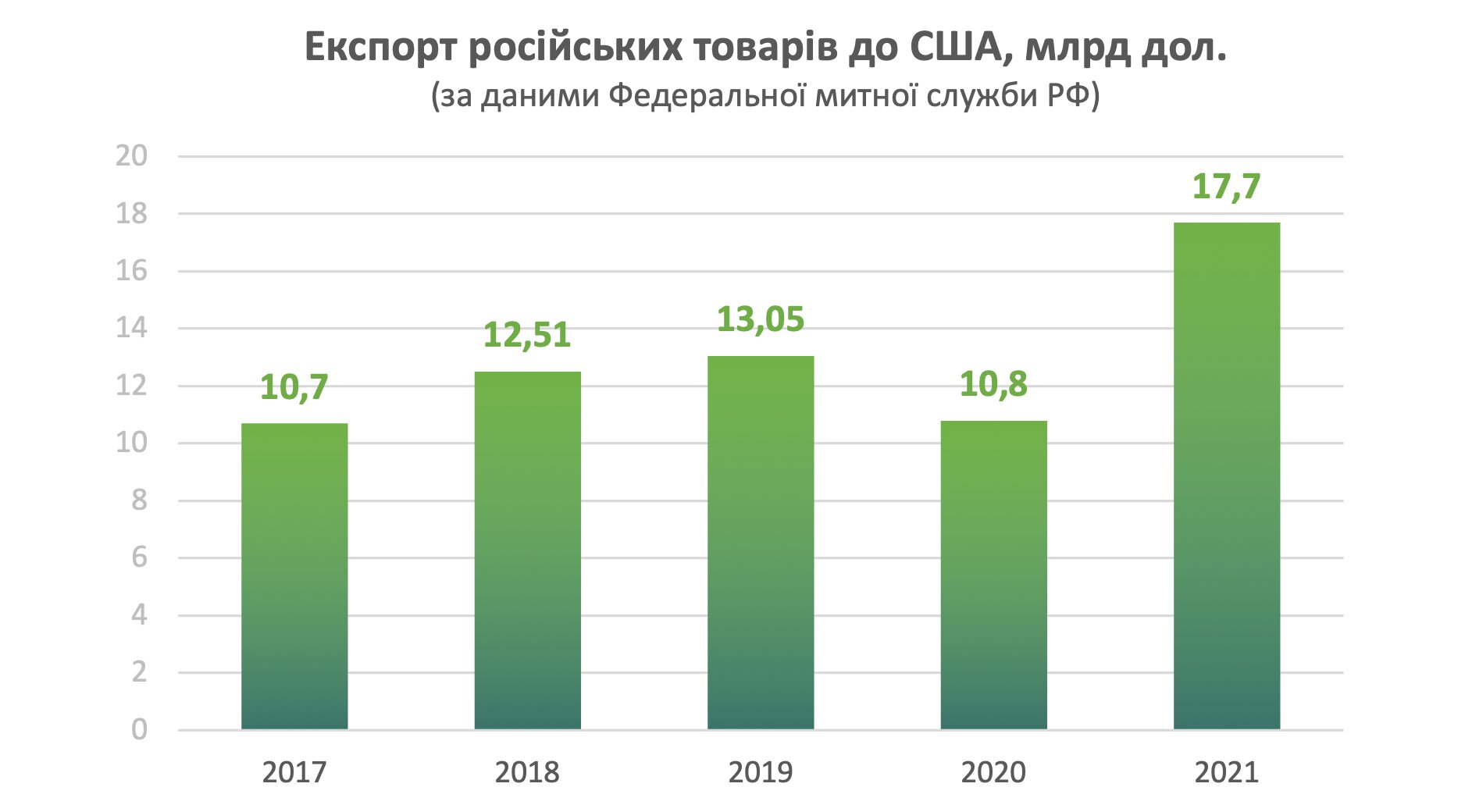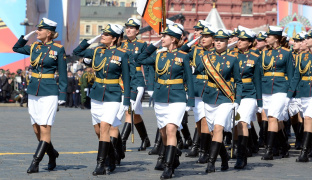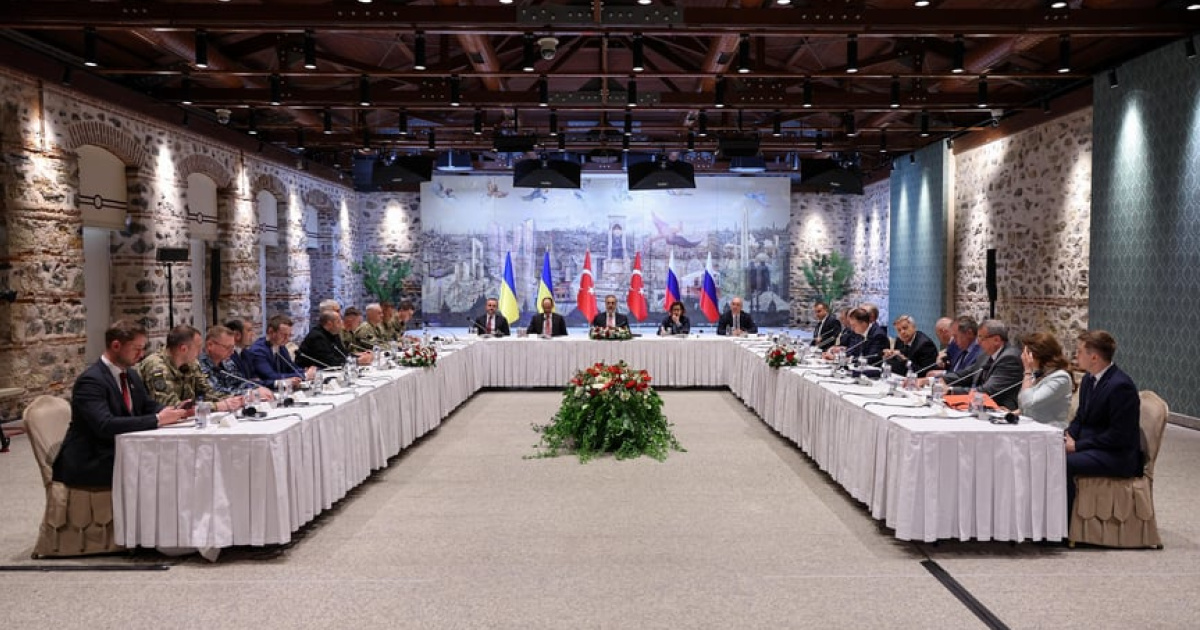The "anniversary" tenth package of EU sanctions, adopted in connection with the anniversary of the start of russia's full-scale war against Ukraine, does not meet the expectations of Ukraine. If we use an analogy with shooting, the EU once again limited itself to a warning shot, not even trying to aim precisely at the "bullseye". American "anniversary" sanctions are traditionally broader. But they are not as effective as they could be either.
Brussels: one step forward, two steps sideways
The measures adopted within the tenth sanctions package mainly complement the previous ones. Now the European dual-use items and technologies’ transit through russia is prohibited. Those are the items that can be used for both peaceful and military purposes.
This decision is a response to attempts by EU producers and their russian partners to bypass previously imposed bans by arranging transit. Although in reality, sub-sanctioned goods did not go anywhere, staying on russian territory.
Additional restrictions on the supply of russian asphalt and rubber to the EU were also included in the tenth package. The official statement of the Council of Europe notes that the export of these goods to the European market "brought significant income" to the economy of the aggressor country.
However, firstly, these revenues are incomparable to the receipts from the import of russian gas, oil and finished petroleum products (gasoline and diesel fuel) to the EU. Secondly, we are again talking about restrictions, not an embargo, i.e. a complete ban.
The sanctions against the critically important energy sector of russia were very superficial. Russians are prohibited from using underground gas storage facilities (UGS) on the EU territory. Specifically, individuals, not state-owned companies.
But the share of private traders from russia supplying gas to the EU via pipelines (if they exist at all) is close to zero. Meanwhile, Gazprom, the main exporter of russian resources to Europe, can continue to use European UGS.
The impression of the new sanctions is also spoiled by the EU's February decision (adopted prior to the sanctions) to remove import restrictions on gasoline and diesel fuel produced from russian oil in other countries.
Thus, the previous ban on importing tanker crude oil (delivered by sea) from russia to the EU completely loses its meaning.
Oil exports are the second-largest revenue generator for the aggressor country's budget, with only gas exports bringing in more. And russian oil producers are absolutely indifferent as to where their resources are sent, whether it's to Germany or Turkey, for example. The main thing is to get paid for it.
In other words, there is some redistribution of transportation routes, but not a decrease in export revenues for the putin regime. And that is precisely the officially declared goal of the sanctions.
Therefore, the February statement by EU Commissioner for Energy Kadri Simson about reducing the EU's oil imports from russia by 90% should not deceive anyone.
Moreover, the EU's decision additionally opens not even loopholes, but wide gates for the "gray" export of ready-made russian oil products.
Serhiy Kuiun, director of the A-95 consulting group, notes that new "unexpected" exporters of diesel fuel from Morocco, Algeria, Egypt and Tunisia have appeared on the market. "And where does the product come from? From russia", - the expert emphasizes.
It is these countries, which mainly do not have their own oil refining, that began to accept this fuel after the European embargo on russian oil products, he explains.
According to Serhiy Kuiun, batches of russian diesel fuel also go to the EU and Ukraine through Turkey. "They don't bother there - they 'change' markings at sea terminals and this fuel becomes Turkish, that is, unsanctioned", - the expert claims, citing information from market participants.
This is confirmed by an investigation of the company Kpler, which CNN reported about in early March. According to analysts, russia is increasing its "shadow" fleet for oil transportation, adding 25-35 tankers every month.
"Gray" tankers are ships that European owners began selling to companies in the Middle East and Asia after the sanctions were introduced.
A similar situation exists with russian liquefied petroleum gas (LPG), which is used as fuel for cars.
"It’s not shipped directly, it doesn't say that it's from russia, but it is. It is imported under the guise of Polish, Lithuanian and Latvian blends, sometimes even with respectable European certificates. However, there are serious doubts that those blends contain anything but russian LPG. Some batches are simply processed based on the quality passports of Latvian storage facilities, where nothing but russian resources are stored", - the director of the A-95 consulting group notes.
Washington, DC: to be continued?
The US included a number of Chinese companies into the "anniversary" sanctions package. They helped russian producers to bypass restrictions on Western countries’ markets.
Among other things, the sanctions prohibit anyone from selling these companies semiconductors produced using American technologies and software in third countries.
In addition to the sanctions themselves, the US decided to punish the aggressor by introducing trade tariff restrictions. According to the US Department of Commerce, additional duties are imposed on the import of more than 100 russian goods with a total value of over $2.8 billion.
This is not insignificant, as can be seen from the infographic below. But Americans are still far from introducing a complete embargo on russian imports.

Export of russian goods to the United States, billion USD (according to the Federal Customs Service of the russian federation)
The White House specifically allocated an increase in tariffs on imported russian aluminum, so it's worth discussing in more detail.
"It will also significantly increase costs for aluminum that was smelted or cast in Russia to enter the US market in order to counter harm to the domestic aluminum industry, which is being squeezed by energy costs as a result of Russia’s invasion of Ukraine", - a release from the White House said.
Essentially, that's all there is to it. Additional tariffs on russian aluminum are being introduced in the interests of American producers who find it difficult to compete with the russians in terms of production costs.
In other words, this measure has no (at least direct) relation to punishing the aggressor for war crimes in Ukraine. And here it is worth remembering that the protection of the US aluminum industry from competitors began under the previous president, Donald Trump.
By his decree, from March 2018, an additional duty of 10% of the customs value is levied on imported aluminum from third countries (not only russia) to the US. Later, producers from a number of American political allies were exempted from the decree.
They are Mexico, Brazil, Australia, South Korea, Japan, etc. But for all others, the 10% tariff remains in effect. Including the plants of the company Rusal, owned by the sanctioned oligarch Oleg Deripaska.
In this context, Biden and his officials did not invent anything new. They simply continue the economic policy of their predecessors aimed at comprehensive support for national industry. Only now they are acting more harshly.
The new tariff (specifically) on russian aluminum will be 200%. In essence, it is a protective measure. It can be confidently stated that with such a customs duty (in effect since March 10), the import of aluminum from russia to the US loses all commercial sense.
Undoubtedly, this is a huge blow to russia, considering that it is the second-largest producer of aluminum in the world. And that until now, it has been one of the five largest importers of aluminum to the US.
But again, this blow is in no way related to the sanctions imposed on the aggressor country for war crimes and gross violations of international law against another state.
The same White House statement notes that from March to July 2022, aluminum imports from russia to the United States increased by 53%. And a sharp increase in imports of any product gives any country the right to limit these supplies through duties (anti-dumping, countervailing, etc.).
And most likely there were appeals to the US Department of Commerce from American manufacturers dissatisfied with the expansion of russian presence in their domestic market. Slightly paraphrasing a well-known expression, we get the formula: "no politics, only business".
Hence the official statement of the Ministry of Foreign Affairs of Ukraine in early March on the need to prepare a new package of sanctions against russia as soon as possible.
According to the spokesperson for Ministry of Foreign Affairs of Ukraine Oleh Nikolenko, these measures should include sanctions against the russian nuclear industry, including the state corporation Rosatom and its subsidiaries.
Ukraine has been calling for sanctions against Rosatom for a long time. This was stated in official statements by Prime Minister Denys Shmyhal, Energy Minister Herman Halushchenko and others during the preparation of the "anniversary" sanctions package.
Moreover, on February 2, the European Parliament adopted a resolution recommending that the European Commission, as the direct developer of sanctions, include Rosatom in them. It turns out that the EU officials ignored not only the requests of their allies, but also those of their own deputies.
Vitaliy Krymov, OstroV




